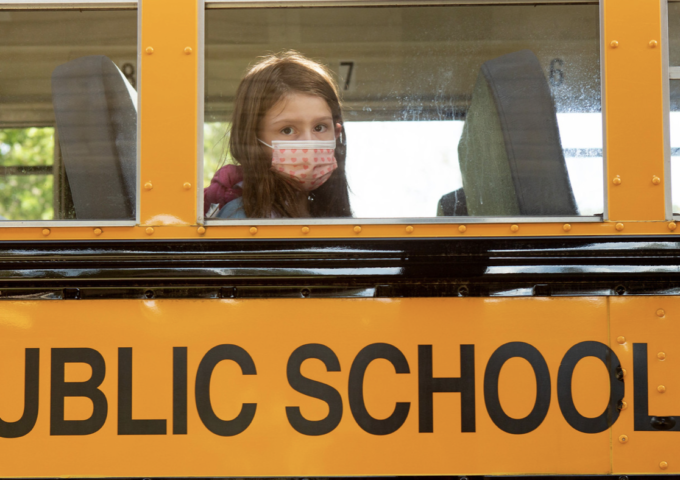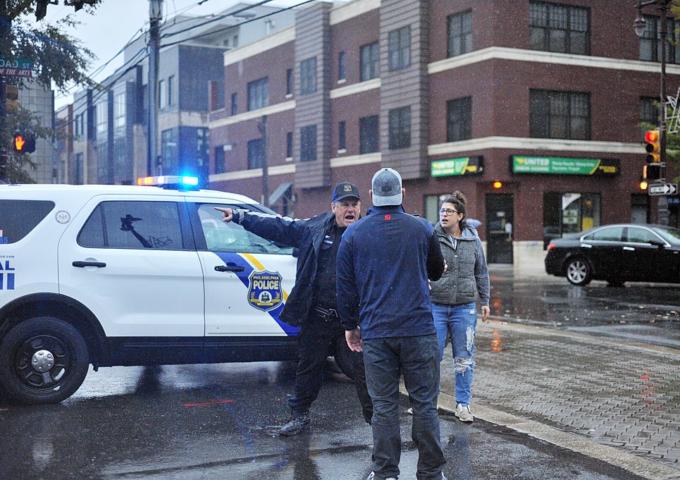Prioritize people, not petrochemical companies
In the midst of three intersecting crises – a health crisis, an economic crisis and a climate crisis – funding a polluting industry that damages people’s health and has been in a steady economic decline certainly isn’t a solution to which most people would jump. And yet, on July 14, that’s precisely the solution 163 Pennsylvania state representatives chose to support. HB732, the bill they passed, actively sets us back through giving over $670 million to the PA fracking and petrochemical industries over the next 26 years.
As a young person, I constantly face the anxiety of knowing how uncertain my future is. While our climate erodes, I feel as if I am strapped to a speeding train on unstable tracks; the drivers of that train – our representatives – frequently take wrong turns and drive at faster and faster speeds in the wrong direction, furthering us from our destination.
The petrochemical industry is the largest consumer of energy in the world. They release huge amounts of polluting methane – one of the most potent greenhouse gases – and hurt Pennsylvanians by distancing us from a renewable future. I was disappointed to see that my representative, Donna Bullock, voted the wrong way on this bill and prioritized companies such as Shell and Exxon, rather than the people living in her district. I hope that in the future, she can help get the train back on its tracks.
– Asaf Lebovic | Philadelphia
The SHOUT Out

Philadelphia is in the midst of yet another heatwave this summer.
Your turn: What’s your ideal way to beat the heat? Send your thoughts to voices@philadelphiaweekly.com.
Philadelphia Civic Trust proposes comprehensive police de-escalation policy
Editor’s note: The Philadelphia Civic Trust recently released a policy designed to address one of today’s biggest issues – the use of force by police. Below are its recommendations.
The Philadelphia Civic Trust has proposed a comprehensive police de-escalation policy designed to bring about the culture change essential to making “use of force as a last resort” and state-of-the-art de-escalation practices the accepted and adhered to standards.
The comprehensive police de-escalation policy is centered around the incentivizing of state-of the art de-escalation practices, including a specific and measurable use of force policy, substantial and continuing de-escalation training, and importantly, tying use of force as a last resort performance to officers promotions. These measures, according to The Citizens Campaign’s Law and Policy Task Force, which developed the policy in concert with Philadelphia Civic Trustees, are proven to not only reduce excessive force incidents, but to also reduce police officer injuries and the costs of police abuse lawsuits.
Putting In Place Use of Force as a Last Resort Policy: Use of force policies, such as the one put in place by the Camden County Police Department, which has primary law enforcement responsibility in Camden, provide clear and specific guidance for use of force as a last resort, contributing to significant reductions in excessive use of force incidents. These policies spell out that the first order of business is to work to “de-escalate confrontations with the goal of resolving encounters without force.” To have maximum impact, these policies should, as required in Camden, require officers on the scene to intervene when needed to prevent escalation as well as to report any instance of the use of excessive force that they witness.
Substantial De-Escalation Training: Police departments that have implemented serious and expanded de-escalation training show significant reductions in injuries and fatalities for both civilians and police officers and much lower payouts in excessive force legal suits. Tying the training to the specific practices of a use of force as a last resort policy will make it even more potent. A 2015 study conducted by the Police Executive Research Forum of 280 law enforcement agencies showed there were eight hours of training on uses of various kinds of force for every one hour of de-escalation training. The result of this imbalance in training, according to law enforcement experts, is that police officers are primed to use force rather than de-escalation techniques, resulting in violence that could have been avoided in at least some cases.
Tying Appropriate Use of Force to Promotions: Success in appropriate use of force should be given significant weight in promotions of individual police officers to incentivize the culture change needed. In addition, superior officers who have officers reporting to them should have the records of those they supervise incorporated into their overall performance evaluations as well.
Requiring Body-Worn Cameras: Body-worn cameras mounted on an officer’s eyeglasses or chest area provide a visual record of use of force incidents and other more positive interactions with community members. Their required use provides the transparency that builds trust, deters the inappropriate use of force, and importantly, enhances evaluation and on-the-job learning. But the policy only works if police officers adhere with the spirit and letter of the policy This has been an ongoing problem in Philadelphia. Keeping the cameras turned on must be strictly enforced with consequences for officers who don’t comply.
Tracking Use of Force Incidents: Mandating the filling out of use of force reports, including the race and ethnicity of suspects, is essential to building the accountability necessary for implementing a comprehensive de-escalation policy. Incidents must be reviewed with the officers involved for both evaluation of de-escalation performance and lessons learned purposes. A comprehensive use of force report for the police department must be produced quarterly in order to measure progress on de-escalation and made public to ensure accountability.
Use Psychological Testing to identify police recruits who possess strong interpersonal skills. Psychological testing has been used by police departments mainly at the tail-end of the hiring process to rule out someone with obvious red flags, such as wanting to “join the force because they like guns or want to drive fast” or explicit racial biases.
Connect Police to the Community: Research shows that regular contact with members of the community in non-law enforcement settings reduces implicit bias. Devising programs that bring police officers to high schools and junior high schools on a regular basis to meet with students to discuss their work and also to talk about careers in law enforcement – rather than employing them as enforcers of school discipline – can help build mutual respect. Promoting regular contact with a broad-cross section of residents through a community policing approach is also essential.

Want racial justice? Start with filling out your census
Those living in our nation’s poor and minority communities have historically gone undercounted in the U.S. Census. For instance, nearly one million Black Americans went uncounted nationwide in the 2010 Census.
Fortunately, there’s an easy step you can take that will go a long way toward ensuring everyone in our communities gets the representation and resources they deserve. By completing the 2020 census questionnaire – online, over the phone, or by mail – you can add your voice to the conversation and make yourself and your family heard.
Here are five ways your census response will help you and your fellow Americans.
It advances racial equity. In recent months, millions have taken to the streets to call for racial equity and justice. These protests have helped amplify the voices of underserved communities. But real change will only take place when these demands become public policy. For that to happen, our government needs to see you. And that can only happen if you stand up to be counted.
The racial inequities that undermine our nation can never be addressed unless you fill out the census and join the fight for social justice.
It directs funding to programs that save lives. As the COVID-19 outbreak continues to ravage the country, it’s critical that we direct our emergency resources to those who need them the most. Black and Latinx Americans are disproportionately impacted by the virus and are twice as likely to die from COVID-19.
Wealth also factors into the survivability of COVID-19. Adults with an annual household income below $15,000 are nearly 15 percent more likely to contract a serious illness following infection compared to those with annual incomes over $50,000. Your census response helps essential workers identify at-risk communities and directs resources to these vulnerable populations.
The coronavirus won’t be the last time certain communities are disproportionately impacted by a natural disaster. Accurate census data will prepare first responders, nonprofit relief organizations, and government officials to respond to future crises.
It funds everything from public housing to school breakfasts. This year’s census will determine how trillions of dollars in federal spending are allocated over the next decade. In 2017 alone, over 300 federal programs relied on 2010 census data to allocate $1.5 trillion of funds. That money pays for everything from public housing to school breakfast programs, new roads to trash and recycling schedules.
Federal dollars won’t reach the communities that need them most unless the government has a precise picture of your local population. You must paint that picture by letting them know you are there.
It ensures fair political representation. Ever wonder why Ohio has 16 seats in the House of Representatives, while Georgia has only 14? The number of representatives a state gets increases with its population – and the census determines its population. You pay taxes, right? Well, don’t you want to be fairly represented?
The results of the 2020 census will shape the congressional map for the next decade. If you want a Congress that represents your community and serves your interests, make sure the government accounts for you and your family.
It creates jobs. Census data doesn’t just help government officials. Businesses consult the census when making hiring and payroll decisions, or where to locate a new office, or when determining how best to serve their communities. For instance, understanding the demographic of a particular neighborhood can help a local grocer determine which items to stock. This knowledge helps her business grow and creates jobs in your neighborhood, while delivering needed items to the marketplace.
At United Way, we fight for every person in every community to be seen and heard. But we can’t do it alone. Join us and help stand up for your community by being counted. You have until Oct. 31 to fill out the 2020 U.S. census. Change doesn’t happen without you.
– Suzanne McCormick is U.S. President of United Way.



